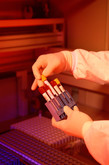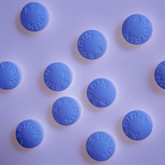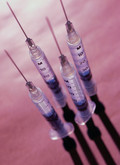Generics/Research
Generic substitution rates in South Africa
Research carried out by the School of Pharmacy at the North-West University, South Africa, has shown that generic substitution rates for antidepressants increased between 2004 and 2006. Meanwhile antidepressant use decreased over the same period while the average cost decreased in 2005, but increased again in 2006.
Bioequivalence of generic cyclosporine
A clinical trial in allogeneic stem cell transplant (ASCT) recipients found that generic and branded cyclosporine could be considered interchangeable.
Value-based pricing – the concept
The concept of value-based pricing (VBP) is outlined. A key purpose of the VBP system is to assess over time whether the drug has achieved its intended goal and justified its cost.
Efficacy and tolerability of generic and branded atorvastatin
In a study carried out in Korean patients the efficacy and tolerability of generic and branded atorvastatin was evaluated and found to be similar in Korean patients at high risk for cardiovascular events.
Generic substitution in Norway
Using a dataset extracted from the Norwegian prescription database containing all prescriptions written in the period January 2004 to June 2007, an analysis was carried out on two brand-name and two generic statin drugs used to treat high cholesterol and showed that prices have a clear impact on generic substitution [1].
Impact of generic substitution in Finland
Mandatory generic substitution was introduced in Finland on 1 April 2003. A recent study compared the impact of generic substitution on both originator and generic pharmaceutical companies in Finland.
Generic substitution causing confusion
How do customers and pharmacists really experience generic substitution? This is the question asked in a recent research article [1].
Generic and branded acetylcysteine bioequivalent
A single-dose study of acetylcysteine 600 mg found that three tablets of 200 mg of the generic formulation given orally were bioequivalent to a single 600 mg tablet of the branded drug.
The clinical equivalence of brand-name beta-blockers and their generic counterparts
The healthcare systems of the world are all under pressure to reduce costs and using generic substitution for the initially prescribed, more expensive equivalents is an obvious area to investigate. However, as a report reiterated in 2010, treatment decisions should not be based on economic grounds alone, for this would not be in the patient's best interest and would therefore be unethical. What is needed is an opinion based on the evidence available regarding therapeutic equivalence [1].
The rise in power of generic drugs
With shrinking pipelines, the impending expiration of many drug patents, and the global economic downturn experienced in the last two years causing prescription payers to face budget cuts, generic drugs are becoming an increasingly large player in the economics of the global pharmaceutical industry.













